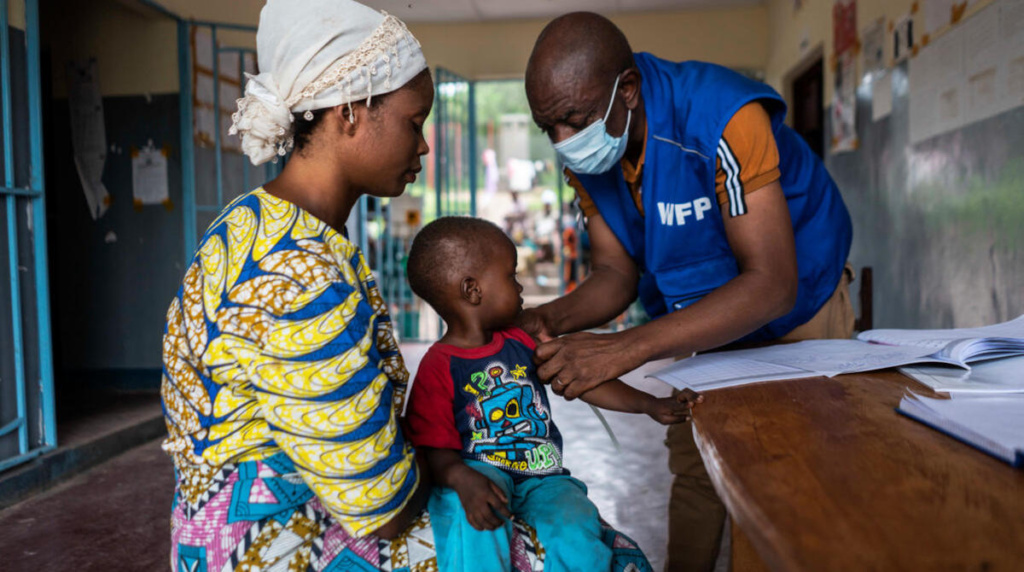In the face of climate change, environmental degradation and increasingly extreme weather events, WFP is helping the most vulnerable and food-insecure communities manage natural resources sustainably, so they can meet today’s livelihood needs and safeguard these resources for future generations. We offset the impact of extreme weather through measures including Forecast-based Financing. This provides communities with funds before a disaster, giving them time and resources to prepare and protect their lives and livelihoods – for example evacuating livestock, reinforcing homes or buying food and essential items.
WFP addresses all forms of malnutrition – from vitamin and mineral deficiencies to overweight and obesity – focusing especially on young children, pregnant and breastfeeding women, and people living with HIV. WFP is the largest humanitarian organization implementing school meal programmes. These improve children’s nutrition and health, while also increasing access to education, raising incomes for farmers and reducing the risks of child labour and early marriage. With women representing more than half of the people we serve, WFP works to ensure that food assistance policies and programmes create conditions that advance gender equality and women’s empowerment.



